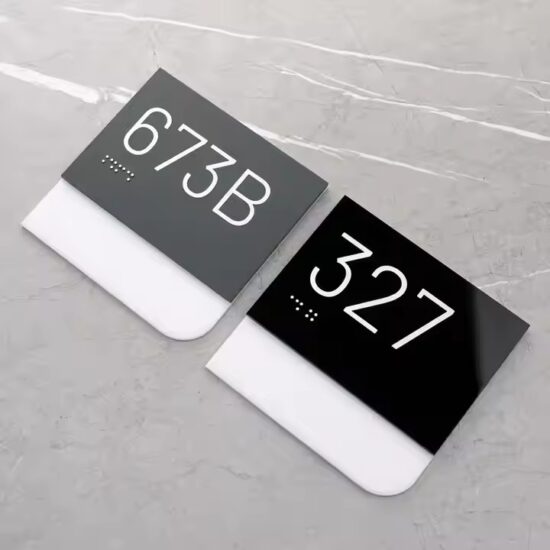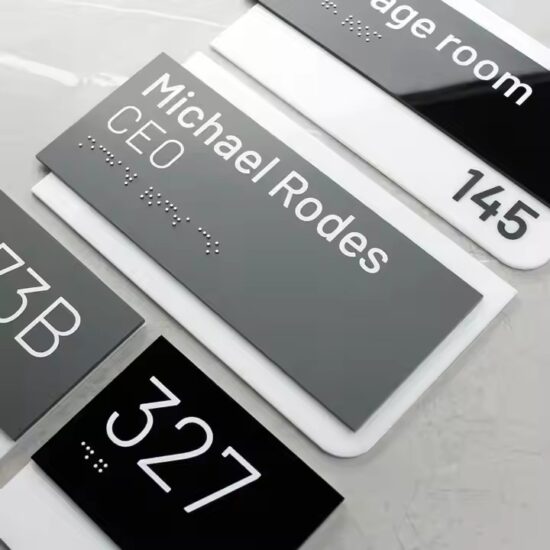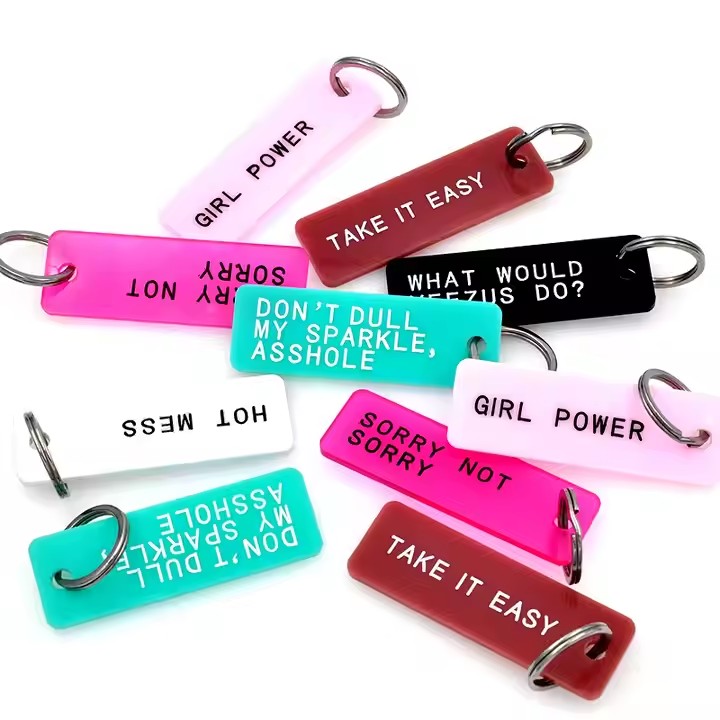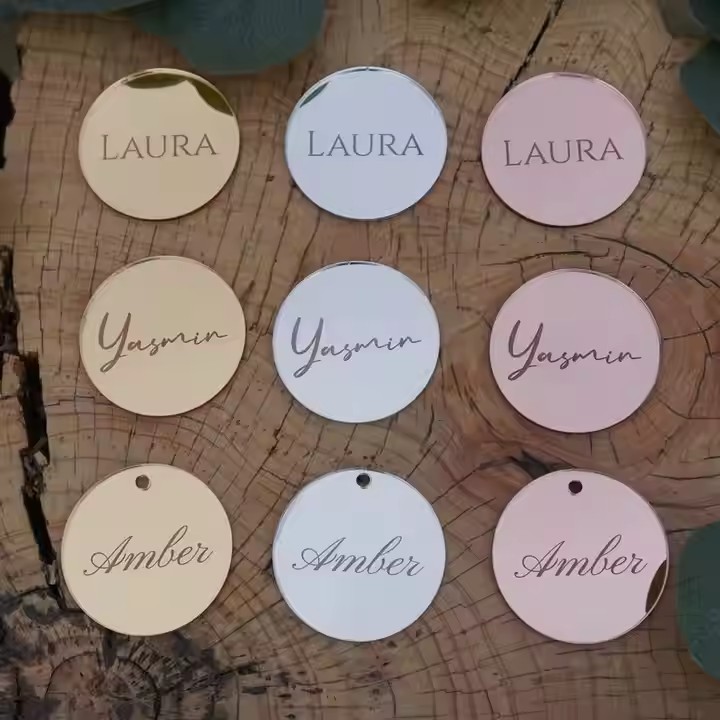

Acrylic vs. Metal vs. Wooden Door Signs: Pros and Cons
When selecting the right door signage for an office, hotel, school, or public facility, the material you choose significantly impacts not only the appearance, but also the durability and cost of the signs. The most common options include acrylic, metal, and wooden door signs. Each has unique advantages and ideal use cases.
Here’s a detailed comparison to help you choose the best fit for your space:
🔹 1. Acrylic Door Signs
✅ Pros:
-
Modern & Sleek Look: Clear or frosted finishes provide a glass-like, professional appearance.
-
Highly Customizable: Supports UV printing, laser engraving, vinyl graphics, and multi-layer designs.
-
Lightweight & Easy to Mount: Suitable for adhesive, standoff, or screw installations.
-
Cost-Effective: Offers a premium look at a lower price point than metal or hardwood.
-
Weather Resistant: Suitable for both indoor and light outdoor use.
❌ Cons:
-
Can scratch more easily than metal.
-
May crack under strong impact if not handled carefully.
Best for: Modern offices, hotels, educational institutions, retail stores.
🔹 2. Metal Door Signs (Aluminum, Stainless Steel, Brass)
✅ Pros:
-
High Durability: Resistant to corrosion, weather, and physical wear.
-
Prestigious Appearance: Ideal for executive offices, banks, law firms, or government institutions.
-
Long-Lasting: Holds up well in both indoor and outdoor environments.
-
Professional Finishes: Can be brushed, polished, or anodized.
❌ Cons:
-
More Expensive than acrylic or wood.
-
Heavier Weight may require secure mounting methods.
-
Limited Color Options unless painted or printed.
Best for: Executive spaces, exterior door signage, luxury branding environments.
🔹 3. Wooden Door Signs (Natural or Engineered Wood)
✅ Pros:
-
Warm, Natural Aesthetic: Adds a rustic or traditional touch.
-
Eco-Friendly Appeal: Can be sustainably sourced and biodegradable.
-
Custom Carving & Etching: Offers a handcrafted look and texture.
❌ Cons:
-
Less Resistant to Moisture: May warp or discolor over time in humid environments.
-
Requires More Maintenance: Needs sealing or polishing to retain appearance.
-
Heavier Than Acrylic: Installation may require screws or brackets.
Best for: Boutique hotels, creative studios, rustic venues, and heritage spaces.
🔹 Summary Comparison Table
| Feature | Acrylic | Metal | Wood |
|---|---|---|---|
| Appearance | Modern, sleek | Luxurious, formal | Natural, warm |
| Durability | Moderate | High | Moderate to low |
| Weight | Light | Heavy | Medium |
| Customization | Very flexible | Moderate | Moderate |
| Cost | Affordable | Expensive | Mid-range |
| Maintenance | Low | Low | Medium to high |
| Suitable For | Offices, hotels | Executive spaces | Boutique settings |
✅ Final Thoughts
Each material has its strengths, and the right choice depends on:
-
Your brand image (modern, formal, natural)
-
Location (indoor vs. outdoor)
-
Budget and volume needs
-
Expected lifespan and maintenance preferences
For affordable modern signage, acrylic is often the go-to.
For executive or outdoor durability, metal wins.
For aesthetic warmth, wooden signs shine.




